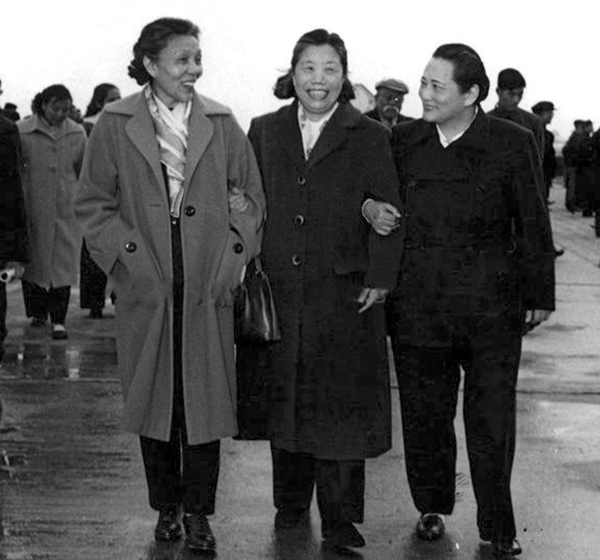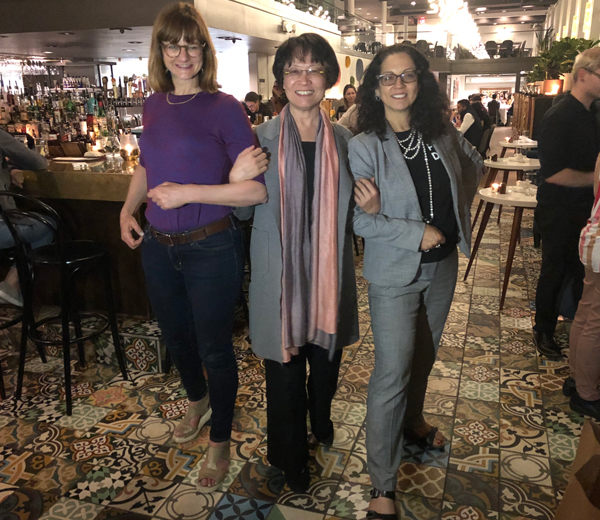Transnational Feminist Summer Institute
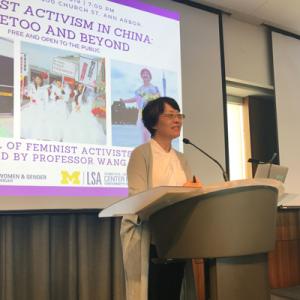
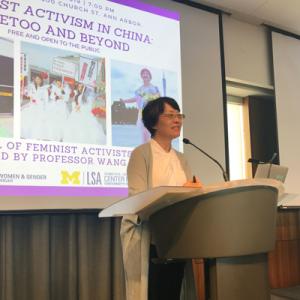
Last month, the “Transnational Feminist Histories” project of the Institute for Research on Women and Gender hosted a nine-day feminist summer institute, organized by Professor Wang Zheng. Participants included young feminist students and scholars from China, the University of Michigan, and diverse locations globally who have been working on the history of international socialist feminism.
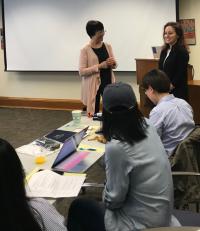
The summer institute was divided into two periods with two focuses. From May 27 to May 31, participants from China workshopped issues in contemporary global feminist movements. Examining contemporary feminist issues in a global context, the workshop’s aim was to broaden the intellectual scope of the participants via in-depth discussions and exchange of information.
The scholars and activists were treated to presentations by some of U-M’s top feminist scholars, including Professors Elizabeth Wingrove, Anna Kirkland, Silvia Lindtner, Maria Cotera, Lilia Cortina, and Abby Stewart, as well sessions about campus sexual assault and gender harassment with SAPAC and U-M’s Educational Theatre Company. The group also traveled to Detroit to visit with community activists at the James and Grace Lee Boggs Center.
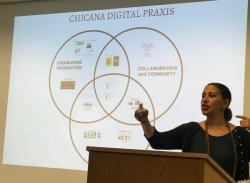
Several Chinese feminist activists took part in a public panel discussion in which they shared their personal stories and experiences. To an audience of American and Chinese students, faculty, staff, and community members, they discussed their direct action tactics including anti-sexual harassment campaigns, some of which culminated in the 2015 detention of five organizers -- later known as the Chinese Feminist Five. Despite the many obstacles, including censorship, surveillance, personal and professional intimidation, and lack of resources, the young activists continue to push for gender equality and human rights.
The second part of the summer institute ran June 1-3, with a focus on the history of global socialist feminism. In addition to the Chinese participants, this seminar included scholars who have been working on the little studied subject of global socialist feminism in diverse geographic locations, including India, Poland, Italy, Hungary, Finland, Ireland, Canada, and China.
The goal of this part of the summer institute was two fold: first, to expose young Chinese scholars and activists to the cutting-edge scholarship on the history of global socialist feminism, in which Chinese socialist feminists were once major players, though the knowledge of which has been erased in China and in the West; and second, to create an opportunity for scholars from diverse disciplines and geographic locations to share primary sources they have uncovered from archives globally as well as their research findings on socialist feminists’ activism in a global context.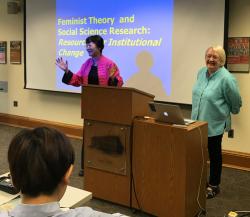
The transnational and interdisciplinary workshop on the history of global socialist feminism was organized by a team of collaborators: Professor Wang Zheng of U-M, Professor Elisabeth Armstrong of Smith College, and Professor Kristen Ghodsee of University of Pennsylvania. They hope to initiate a new field of transnational study of socialist feminism with this cohort of young international scholars who are producing groundbreaking scholarship in diverse disciplines.
Plans were made at the symposium for collaborative efforts to research, produce, and disseminate knowledge about global socialist feminism. The first concrete plan was to publish a socialist feminist guide to anti-fascism with collaborative efforts of the international scholars. Readings and resources from this symposium can be found on their website.
Description of photos below: The black & white photo was taken in December 1949 when three leaders of the Chinese women’s movement entered the Asian Women’s Congress held in Beijing. The second photo was taken at the Global Socialist Feminism symposium's farewell party, in June 2019. Three organizers of the symposium, Elisabeth Armstrong, Wang Zheng, and Kristen R. Ghodsee, posed in emulation of the three Chinese women leaders.
